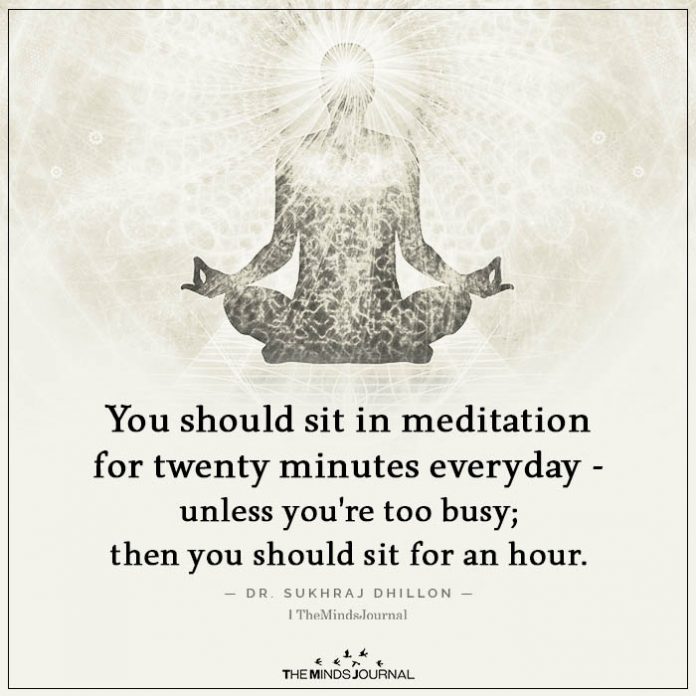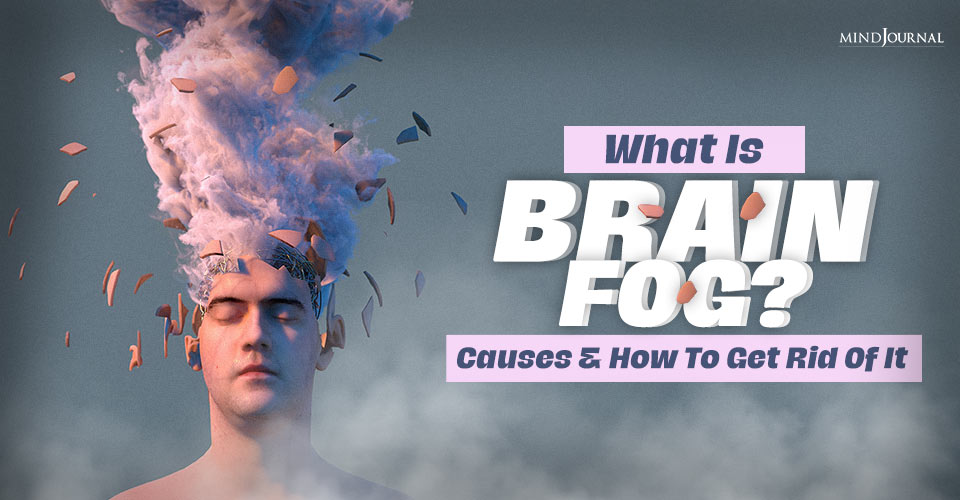We all get backslides in memory and concentration from time to time. When we get overwhelmed or seriously stressed, it’s normal to get some momentary mental lapse. But brain fog is kind of a different thing as we lose our mental clarity and it also impairs our natural cognitive process.
You may sometimes find yourself at an unexpected loss for words, struggling to describe or provide information about something you know well, only to have the details pop back into your mind out of nowhere later the same day.
Or you maybe you have a tendency to suddenly go blank mid-sentence, frozen by an unseen distraction that pulls you into off-course, derailing your train of thought.
These are examples of a phenomenon known as “brain fog.”
What is brain fog?
Brain fog can most easily be explained as momentary lapses in thinking and concentration which make people feel uncomfortable or queasy.
Also known as a clouding of consciousness or mental fog, it is a “term used in medicine denoting an abnormality in the regulation of the overall level of consciousness that is mild and less severe than a delirium. The sufferer experiences a subjective sensation of mental clouding described as feeling ‘foggy’.”
Sometimes, rather than being capable of responding immediately, our brain needs time to process our own requests for information.
Those who work in healthcare sometimes refer to brain fog lapses as “senior moments.”
What are some causes of brain fog?
Brain fog is often a symptom of mental health issues such as post-traumatic stress disorder (PTSD), depression, stress, and anxiety, and may also occur as the result of medical conditions or personal experiences that place stress on the brain.
Personal Traumatic Experiences Resulting in Brain Fog
For a period of time, after my mother passed away, my brain shut down to process my feelings of grief.
My normally excellent memory went on the fritz. I lost my car keys and house keys forgot appointments and burst into tears at any moment. Each night I dreamed about rescuing a white dog I later realized through counseling was me.
At the time I was concerned my memory would never return.
I was comforted by a therapist who told me that the brain fog I experienced was allowing me to process my grief over my mother’s death. Family caregivers experience similar symptoms of grief related to witnessing aging parents or spouses experience health declines.
When a loved one diagnosed with Alzheimer’s Disease no longer recognizes you as a spouse, son, or daughter, this is also a traumatic experience that requires extra brain effort to process. The feeling that you can’t do anything to change a situation may result in extreme stress and anxiety.
Other such traumatic events include losing a job, the death of a pet, or breaking up with a loved one. These events are disturbing to the brain and may result in short-term brain fog. Personal problems result in concentration problems at work. While we may not want to admit that we bring personal problems to work or work problems home, this occurs on a regular basis.
Health Diagnoses and Treatments Resulting in Brain Fog
Health conditions like low or high thyroid, cancer treatments, low blood sugar, fatigue, or chronic fatigue syndrome may result in brain fog.
The causes are many, the resulting condition of experiencing brain fog is worrisome.
If you feel consistently tired you may have unidentified medical concerns that need to be addressed. Make an appointment with your doctor for blood work to make certain your thyroid, adrenal balances and other levels are normal. An irregular thyroid, high or low, wreaks havoc on the entire body.
Changes in medications or taking a new medication may also result in brain fog or lapses in memory. For older adults, urinary tract infections result in mental delirium and severe disorientation.
Hazy thinking or a lack of concentration during personal conversations or business presentations can be understandably embarrassing.
Related: Visual Memory Test: Measure Your Concentration, Memory, and Intelligence With This Quiz
The best remedy is to make light of the momentary lapse and pay attention to what your body is trying to tell you. Taking a deep breath can calm momentary gaps and speed lapses in the brain’s information processing, and adding humor to the situation helps alleviate the panicky feelings as you regroup.
Learning how to get rid of brain fog is entirely possible when you take some consistent actions in accordance with a variety of techniques.
Below are 5 tips on how to get rid of brain fog as quickly as possible.
1. Exercise
Exercise is a wonderful healer, provides energy, and clears the brain. An increase in oxygen to the brain while exercising helps clear the brain fog cobwebs. A 30-minute walk on a treadmill or a walk outside in the fresh air rejuvenates the brain and the body. That sluggish feeling will disappear. The benefit of a change of scenery is also beneficial may result in feelings of happiness or contentment.
If you find yourself sitting at your desk drowsing off, take a quick walk through the building or around the block. Even this brief walk and change of scenery will provide enough of a change to rid the desire to doze off.
2. Sleep
One benefit of daily exercise is improved sleep. Many of us are sleep-deprived. We are fortunate to sleep uninterrupted for 6 hours a night.
Sleep allows the brain to process emotional information and to problem-solve. Ever pondered a question and woke up with the answer in the morning after a good night’s sleep? The brain works all night while we sleep.
A good night’s sleep improves overall mood and supports feelings of optimism. Sleep also helps us manage daily stress through better control of emotional responses to upsetting situations. When we are tired we may feel cranky or emotionally sensitive and make a statement we later regret. With consistent nights of good sleep, we respond in a more balanced manner.
3. Monitoring your diet
Episodes of low blood sugar may result in brain fog. The foods we eat affect our energy. While recommendations are abundant for foods that boost energy, the same foods do not have the same effect on everyone.
The best suggestion is to watch how your body responds when you eat certain foods. Pancakes and waffles may make you feel drowsy. Cashews, strawberries, and bananas may help you feel energetic. Small snacks throughout the day, rather than big meals may help you maintain energy.
4. Meditation

Daily meditation can calm the mind and increase focus. There are many types of meditation available. Investigate and choose the one that provides the most benefit to you.
Research studies about Transcendental Meditation (TM) confirm evidenced-based results that include inner peace and wellness. Other benefits include relief from stress and anxiety, mental clarity, and a healthy heart. You might be surprised to learn of a long list of celebrities who practice TM. The David Lynch Foundation supports TM programs, also called quiet time, in schools to support academic learning.
Related: Can Mindfulness Meditation During Coronavirus Outbreak Keep You Safe?
Regardless of the type of meditation technique you choose, practice daily to reduce brain fog and increase focus and concentration. Daily meditation offers many benefits for health and well-being.
5. Alternative healing techniques
For those seeking alternate options to clear brain fog, seek a local trusted energy practitioner, and schedule a consultation. Low energy and brain fog may also be diagnosed by practitioners who specialize in monitoring Ayurvedic pulses. Reiki, “a Japanese technique for stress reduction and relaxation,” is another healing modality many find helpful.
There are many natural causes of brain fog that can be eliminated by evaluating imbalances in systems of the body. Some of these imbalances are believed to be energetically related.
Donna Eden, who experienced serious life-threatening concerns in her teens, provides hope, healing, and empowerment for individuals with health concerns. Her belief is that energy medicine brings vitality when you are drained and supports improved health.
Whatever the cause of brain fog, know that options exist to increase concentration, focus, and memory. Investigate the options and choose the right plan for you.
If you find this article helpful, then let us know in the comments. Also, share it with your friends who are suffering from brain fog.
Originally appeared on: Your Tango












Leave a Reply